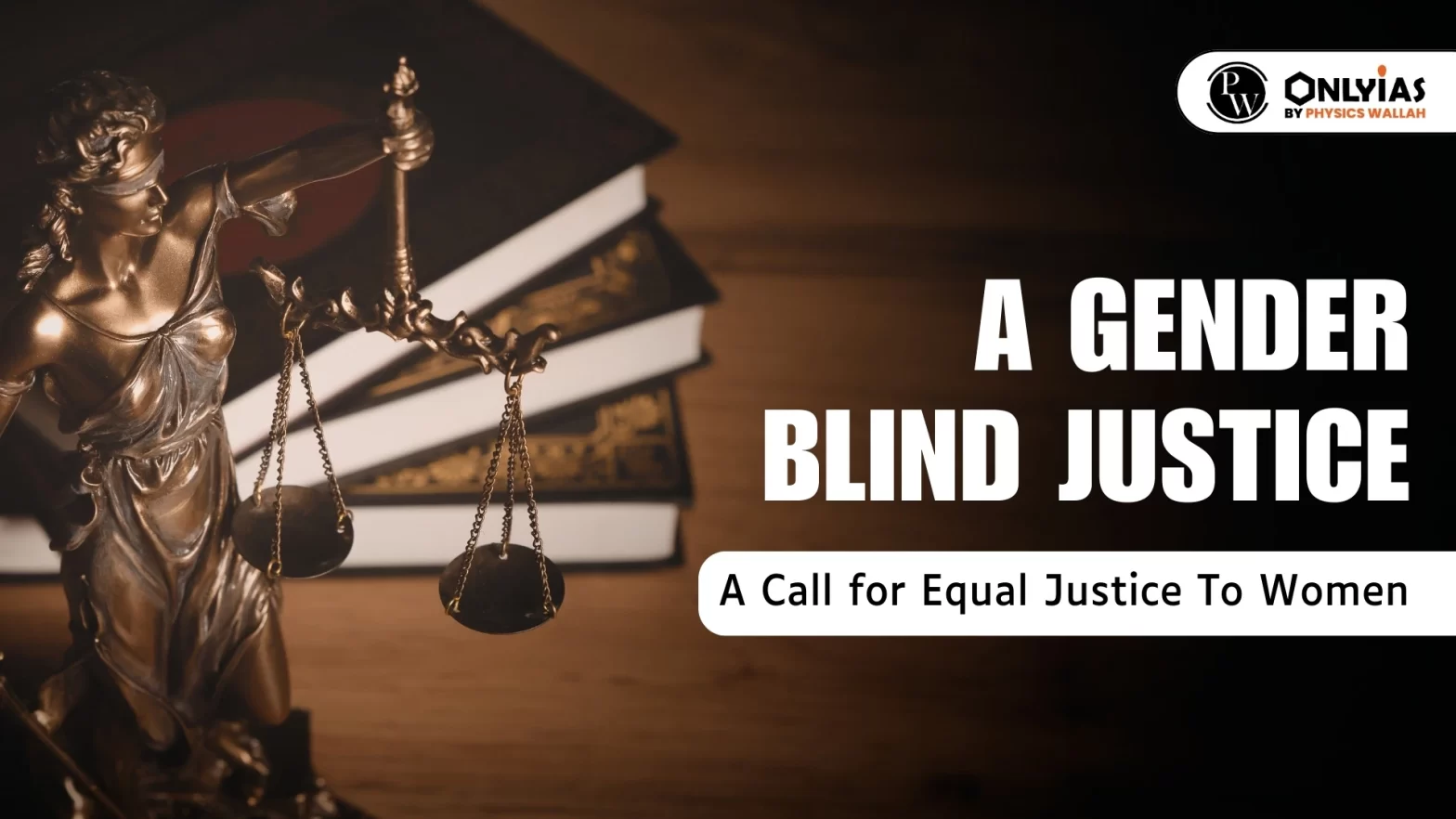Context:
- A recent study ‘Does Victim Gender Matter for Justice Delivery?’ looked at police and court responses to women’s cases in Haryana. It found that at every stage, women are treated differently from men in the justice system.
| Relevancy for Mains: Challenges faced by Women in accessing justice and steps that need to be taken to counter this discrimination and provide accessible justice to Women. |
Gender Blind Justice: A Closer Look at the Challenges in India’s Criminal System
- Difficult to Access: The criminal justice system in India is very difficult for citizens to access. Police stations are busy and courts have long delays. As a result, less than 60% of cases end in conviction.
- Longer Wait for Women: At police stations, women have to wait longer than men to file complaints. If a woman is with a man, the process is faster.
- For example, if a man goes to a police station, he may get his complaint filed in 30 minutes. But a woman alone may have to wait 1-2 hours for the same process.
- More Time for Investigation: For crimes where women file complaints, police take more time to investigate. Fewer cases filed by women are sent by police to courts for trial.
- For example, out of 100 murder cases filed by women, maybe only 50 reach the courts. But out of 100 murder cases by men, 80 may reach courts.
- Higher Delays: In court cases with women complainants, there are more delays, more acquittals, and lower conviction rates. This means the number of men found guilty and punished is higher compared to cases filed by women.
- For example, out of 100 theft cases by men, 50 men may get convicted. But only 30 women may see convictions in 100 theft cases filed by them.
- Reason for Challenges: As per the study, women find it harder to hire lawyers or regularly follow up on their cases in court. They face challenges related to responsibilities at home and traveling long distances.
Recommendations Given by the Study
- More Women Recruitment: Recruit more women police officers, who may be more sensitive to women complainants.
- Better Monitoring: Governments should create systems for better monitoring of women’s cases, so women don’t have to do repeated follow-ups.
- Prioritizing of Cases: Ensure police and courts give equal priority and seriousness to cases filed by women compared to those by men.
Conclusion:
The study may have some limitations and require more research for validation of its findings. However, it highlights important issues of discrimination that are faced by women in getting justice, which governments must address on a priority basis.
![]() 17 Nov 2023
17 Nov 2023

